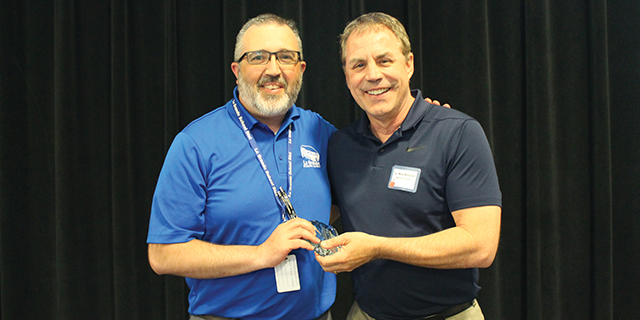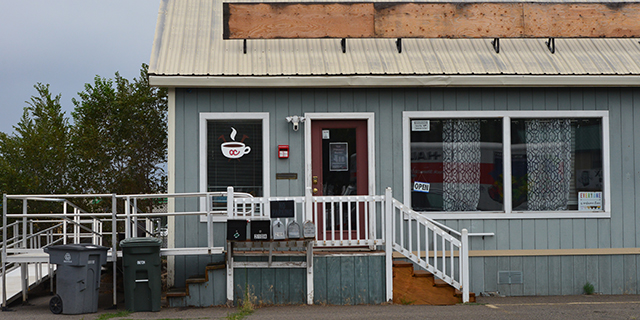TROY HILL IS AN AUCTIONEERING CHAMP
Published 12:00 am Wednesday, September 22, 2004

- ÂWith the right training, anybody can become an auctioneer. If you can speak, you can do it.'Â Troy Hill ().
UNION It’s called a chant, and by it afficionados of auctions know they’ve come to the right place.
"One dollar bid, now 2,
now 2, will you give me 2?
Two dollar bid, now three,
Now 3, will you give me 3?"
Rapid-fire, quick-cadence and generally rattled off in a near-mesmerizing tone, the auctioneer’s chant is used to sell everything from high-priced art to the odds and ends of a family moving sale, quickly.
"They teach you the chant, the bid call, and laws all facets of auctioneering," explains Troy Hill proprietor of Hill’s Auctioneering of Union.
For Hill, that learning occurred not quite two years ago, when, as a brand-new 2002 graduate of Eastern Oregon University, he headed to Mason City, Iowa, and the World Wide College of Auctioneering.
Now, two years later, Hill has been crowned Oregon’s Grand Champion in the Oregon Auctioneers Association Bid-Calling Champion-ship, contested at the Oregon State Fair at the end of August.
Listening to Hill, you’d never guess his profession or passion.
He’s shy, speaks softly in conversation, and considers himself an introvert.
But as the state association says, but him in front of a microphone and something magical happens.
"With the right training, anybody can become an auctioneer," Hill says. "If you can speak, you can do it."
Hill had to overcome at least two things as natural as speaking to win his championship, though other experienced auctioneers, two in fact, who each had around 20 years each of experience and who had won awards
themselves.
"It was sort of intimidating, but also felt great to be among them," Hill says.
Hill competed last year and this year, he says, in part to demonstrate his skill and let observers at the fair know he was in business.
"Right now, I do estate sales and consignment sales, and maybe an auto auction sometimes," he says.
With a father who raises horses, Quarter horses and paints, Hill saw auctions aplenty as a spectator growing up, and would like to break into the world of horse
auctions.
Winning the state contest not only earned Hill a $500 prize, but means that he’ll host next year’s Oregon contest after competing next July in the National Auctioneers Association’s International Auctioneer championship in Pittsburgh.
Judged the state’s best by a panel of other auctioneers checking out his chant, his sound, his style, his poise, his appearance and his interaction with the crowd, will, Hill hopes, "put my business on the chart."
Auctioneering takes intelligence and a willingness to work, and sometimes work hard, Hill says.
Auctioneers need to study what is up for sale, since few can claim to be experts in antiques, furniture, automobiles, farm equipment and all the things they may need to sell.
"That’s why those people who do that are called ‘appraisers’," Hill says, adding a grin.
Auctioneers, he says, have to "sell the sale," before they even begin calling for bids. That’s part of the setting up of the sale, and deciding which items will be sold when.
It all comes with experience, that illusive quality Hill is working to gain.
Hill’s most memorable auction, to date, was a Wallowa County auction he did for a resale business that never managed to get the doors opened. "They had everything you can imagine," he says, from washing machines to tricycles.
He sold it all in six hours.
If Hill who has a degree in sociology from EOU could get one thing through people’s minds, he says, he’d like to change the idea that auctions are for "distressed" items.
"That’s really changing," Hill says. Some extremely rare and expensive items can be found at auctions, and many professional businesses use auctions to shift inventories.
Whatever the sale, auctioneers need to be professionals, Hill says, willing to help people understand and see the value in what’s being sold.
And as for those who attend auctions?
Hill first asks if his interviewer attends auctions.
Not often, but sometimes, the answer comes.
"Some people become addicted," Hill says with an earnest look, "they really do."





